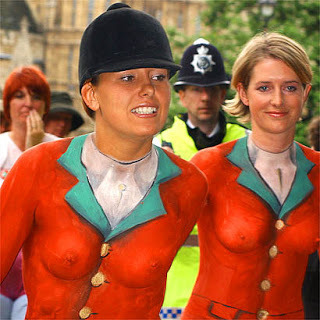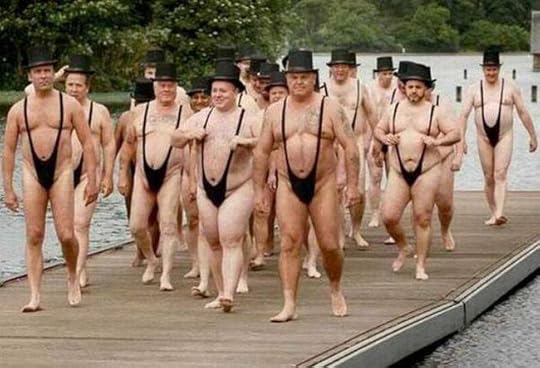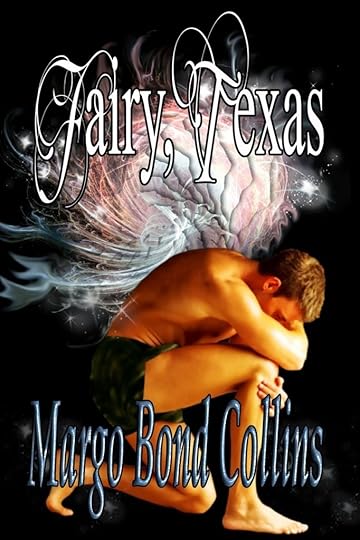L. Jagi Lamplighter's Blog, page 34
April 29, 2014
My Would-Be-Resignation from SFWA
I do not get to withdraw formally from SFWA because they did not realize I was a member…but I ran John’s membership for years (except for the voting. He did that.) And we both agreed to leave before John withdrew.
I am not like John, who doesn’t pay attention to worldly things and whose only regret about dropping out of SFWA will be that he can no longer write funny stories about visiting the secret SFWA mansion in Pennsylvania.
I loved SFWA.
I adored it. I dreamed of joining for years. I carefully waited and planned, striving to earn the right to be a member.
For over thirty years.
I admired those who were members and cherished my bulletin which I read religiously. (Mainly Laura Resnick, back when she wrote for it, and, after her, the due of her father and the other gentleman he wrote with. Their articles were the best part.)
The only reason I was not a member was that John joined first. For me to join would have been double the money for the same services. They have a joint membership now, I believe. I had been planning to ask to join this summer when his membership came due.
But now…I am abandoning that dream.
Here, simply, are my reasons:
An organization whose job is to represent people who write (among other things) about chain-mail bikini clad gals cannot decide to object to chain-mail bikini clad gals.
Bikini girls might be right. They might be wrong. The job of SFWA is to represent science fiction and fantasy writers…including those who write or paint bikini-clad gals.
Any given SFWA member can go out and refuse to buy such books. They can blog against such books. They can try to talk readers out of reading such books.
If readers don't buy them, believe me!, SFWA authors will stop writing them.
But as long as SFWA is an organization that is meant to represent authors who do write such books, it either:
Must do so without complaining.
Or must not be surprised when the authors it has stopped representing depart.
Obviously, this is not about one cover…or even the loss of my favorite bulletin feature…but I thought this issue summed up the problem simply and clearly. If a professional writing organization decides to uphold any social adjenda whatsoever, they turn their back on the members of their organization that do not support that particular adjenda.
Worse—this is speculative fiction—they turn their back on those who merely wish to speculate about what happens if you don’t support that agenda.
In other words, by dabbling in politics—even something as simple as decided that a half-clad girl is sexist—they stop supporting science fiction.
So, it is with great sadness that I must announce that I shall not be applying for membership in this group that I have so long loved.
Alas, now I shall never have my long-awaited chance to spend a weekend in the present of the greats of the field at the secret SFWA mansion.
April 28, 2014
Caption This!
I promised something less hidious to the eye after last week's mainly-naked men weaing hats.
So, here are some mainly naked girls…wearing hats.
Caption This Winner!
Last week's entry apparently made a lot of people squirm. We had many, many great captions. But the winner caught what amused me so much about the picture:
The Top Hat Society held a demonstration to show that top hats are all you need to look classy.
Not everyone considered it a successful demonstration.
Overheard in the Wright Household
Juss: "It's ironic that at the school where Steve Johnson teaches they have play with air-soft guns, have a war club, and one teacher has a bullwhip! While at my school, I got suspended for having a plastic spoon."
April 26, 2014
Returning the Favor
YA Author Margo Bond Collins is returning the favor and Guest Blogging me.
If you haven't read my All About the MagicOr the Gosling of the Golden Creek Vs. The Unicorn Pooper-Scoopers essay (it was at Magical Words earlier this year) now you can:
All About the Magic ~ A Guest Post by L. Jagi Lamplighter
Apr25
Welcome today to the inimitable L. Jagi Lamplighter, one of my favorite writers (I love, love, LOVE her Prospero’s Daughter trilogy!) and an all-around amazing person. Today, she’s here discussing magic in a guest post she has generously allowed me to republish from Magical Words. Check out her thoughts on magic, geese, and unicorn poop below, then take a look at her latest book, The Unexpected Enlightenment of Rachel Griffin before you go!
All About The Magic: Or the Gosling of the Golden Creek Vs. The Unicorn Pooper-Scoopers
Beside the road leading to my street, there is a small pond. This pond is the favorite nesting place of a flock of Canadian geese who like to walk out in the street.
The other day, I found myself sitting and waiting for the geese to depart, so I could drive home without running over them. As I watched the birds waddle by, I thought of people I knew who had expressed hatred for these creatures that stop traffic and leave goose droppings all over the sidewalk and golf courses. Their hatred added to my impatience.
After all, I wanted to get home. I had things to do, man!
But then I remembered something…
Read more…
April 24, 2014
New Easter Short Story from John
John often writes a short story for the holidays. This one is based on an opening that he wrote at a writing seminar once. I thought it was a great opening!
It was not the being dead that I minded, it was the hours.
No one ever calls me up during the day, and most people decide to wait until after midnight, for some reason. I am a morning person, or was, so meetings in the still, dark hours lost between midnight and the dawn make me crabby.
Read more: http://www.scifiwright.com/2014/04/pa...
Writing Chat Class — with me…or Rachel Griffin
I will be teaching another online writing class next Wednesday, April 30th at Savvy Writer.
These classes are FREE. You just have to register.
For some reason, they have me listed as Rachel Griffin. LOL
Breathing Three-Dimensional Life Into Your Characters Hosted by Author Rachel Griffin
April 30, 2014 | 9:00 p.m. EST – 10:00 p.m. EST
SavvyAuthors Chatroom
CHAT TOPIC: A look at how to use The Foil as well as the Shading Technique (derived from Donald Maass's Writing The Breakout Novel Workbook) to help major and secondary characters spring to vivid, three-dimensional life.
To attend, you must register here:
April 23, 2014
Wright’s Writing Corner: Guest Post Author Margo Bond Collins
Recently, I picked up a YA novel set in a fictional version of the real city Fairy, Texas (how cool is that as a place to live?) and was amused to see that the heroine's name was Laney (which is basically what the L. in L. Jagi Lamplighter stands for. Actually, it stands for Lane, but I was called Laney when I used it, back in the long ago dream time.)
Amused by this, I wrote the author a note. To my amazement and delight, she wrote back that she was a fan of my Prospero books and that she had recently quoted my Dating the Monsters essay (from Ardeur, a book of essays about Anita Blake, Vampire Hunter/Lover from Benbella) in an academic paper she wrote. She was kind enough to take a portion of her paper and de-academicize it (is this a word? I sincerely hope no) for us.
You can buy her charming YA here.
Are Kick-Ass Heroines Always Also Monsters?
by Margo Bond Collins
One of the things that I’ve always loved about the use of the term “kick-ass” is that it indicates approval of heroines’ tendency to move from more traditionally feminine roles into behaviors more usually associated with the male heroes of action movies and literature; these women carry weapons and aren’t afraid to use them.
But the shift of heroines’ roles in urban fantasy from passive recipient of romantic love to active participants in violence and killing also carries a certain amount of anxiety in our culture. L. Jagi Lamplighter (my fabulous host today!) notes that “today’s audiences have welcomed this golden age of butt-kicking heroines with great relish,” but also claims that these heroines face a “fundamental conflict between modern culture and drama”:
Culture demanded a heroine who is fierce, powerful, and spunky, who lives in a world without taboos where she can do exactly as she pleases. But the needs of drama, the laws that govern what makes a story romantic, require something else entirely: a superior male who lives in a world where taboos separate the heroine from the object of her desire.
Thus, according to Lamplighter, urban fantasy requires a supernatural male love interest—one who is inherently superior to the heroine simply due to his supernatural nature. This is significant, Lamplighter claims,
Because violence is masculine. The more violent the hero, and the more he is ravaged by desires he cannot control—the desire for blood, the uncontrollable compulsion to turn into a wolf under the full moon—the more excuse for the hero to allow his passions to run away with him, and the greater the heroine’s victory when she ultimately tames him!
But this reading doesn’t fully account for the fact that most of the heroines of urban fantasy are every bit as violent as the male love-interests. Indeed, the heroines are often exponentially more violent than the males, a fact that is often of great concern to the heroines. As she develops her skills in necromancy, for example, Laurell K. Hamilton’s Anita Blake (arguably the first urban fantasy heroine) frets about her humanity; she says that “Raising the dead makes a lot of people class me with the monsters. There are even days when I agree with them” (Circus of the Damned). She worries that she is becoming a monster, claiming that “It was getting harder to tell the humans from the monsters. I was even beginning to wonder about myself. There are more roads to monsterdom than most people realize” (The Lunatic Cafe). But almost as much as worrying about remaining human, Anita worries about maintaining her place in a masculine world. At one point, as she looks at a female civilian called out to help take down a rogue zombie, she says,
The girl just stared. I could almost smell her fear. She was entitled to it. Why did it bother me so much? Because she and I were the only women here, and we had to be better than the men. Braver, quicker, whatever. It was a rule for playing with the big boys. (The Laughing Corpse).
As the literary progenitor of virtually all urban fantasy heroines, Anita is an important model for what happens when urban fantasy heroines act out the kind of violence that is traditionally considered masculine—and what happens to Anita is that despite acting violently because “if she doesn’t, someone innocent will get hurt” (as Alasdair Stuart notes) is that she herself turns into a monster. By the later novels, Anita is no longer particularly worried about going to church or whether or not she has become a monster or even if she is making the right decision about which monsters to kill. She comes to terms with her own increasingly violent actions as she tracks and kills rogue vampires, evil voodoo priestesses, shapeshifters, and other monsters, even as she increasingly identifies with them. In Cerulean Sins (the eleventh book of the series) for example, she says “One of my favorite things about hanging out with the monsters is the healing. Straight humans seemed to get killed on me a lot. Monsters survived. Let’s hear it for the monsters.” Anita’s experience parallels that of any number of other urban fantasy heroines: Faith Hunter’s Jane Yellowrock, Carrie Vaughn’s Kitty Norville, Ilona Andrews’ Kate Daniels, Rachel Vincent’s Faythe Saunders—all of them must embrace some degree of monstrosity in order to become the kind of kick-ass heroines we love.
In “Invisible Monsters: Vision, Horror, and Contemporary Culture,” Jeffrey Andrew Weinstock argues that “to redefine monstrosity is to simultaneously to rethink humanity” (275). However, urban fantasy novels’ definition of monstrosity as connected to feminine power does not “rethink humanity”; rather, if these books have a message for women, it is that in order to embody feminine power, a woman must become a monster—but in doing so, she learns that to be monstrous is the natural order. Asa Simon Mittman writes that
Monsters do a great deal of cultural work, but they do not do it nicely. They not only challenge and question; they trouble, they worry, they haunt. They break and tear and rend cultures, all the while constructing them and propping them up. (1)
In the case of urban fantasy, though, there is more propping than tearing, and despite any apparent nods to feminism, urban fantasy contains its potentially dangerous female characters within carefully constructed heteronormative narrative bounds by ensuring that femininity and monstrosity are ultimately equated. This tendency to create characters with the (ultimately frustrated) potential to escape traditionally patriarchal cultural norms shows itself nowhere so much as in urban fantasy’s kick-ass heroines—which ultimately raises the question: is it possible for those of us who write urban fantasy to create the kinds of kick-ass heroines we love without simultaneously creating monsters?
_______________________
Margo Bond Collins is the author of a number of novels, including Waking Up Dead, Fairy, Texas, and Legally Undead (forthcoming in 2014), and all of her novels feature kick-ass heroines with varying degrees of inherent monstrosity. She lives in Texas with her husband, their daughter, and several spoiled pets.
_______________________
Buy Fairy, Texas: http://www.amazon.com/Fairy-Texas-Margo-Bond-Collins-ebook/dp/B00I7BTMJ4/
Buy Waking Up Dead: http://www.amazon.com/Waking-Dead-Margo-Bond-Collins-ebook/dp/B00HKQQRJA/
Add Legally Undead to your Goodreads shelves: https://www.goodreads.com/book/show/18366353-legally-undead
_______________________
Works Cited
Hamilton, Laurell K. Circus of the Damned. 1995. New York: Jove, 2002. Kindle.
—. Bloody Bones. 1996. New York: Jove, 2002. Kindle.
—. Guilty Pleasures. 1993. New York: Jove, 2009. Kindle.
—. The Killing Dance. 1997. New York: Ace, 2011. Kindle.
—. The Laughing Corpse. 1994. New York: Jove, 2002. Kindle.
—. The Lunatic Cafe. 1996. New York: Jove, 2008. Kindle.
—. Narcissus in Chains. New York: Berkley, 2001. Kindle.
Lamplighter, L. Jagi. “Dating the Monsters: Why It Takes a Vampire or a Wereguy to Win the Heart of the Modern It Girl.” Ardeur: 14 Writers on the Anita Blake, Vampire Hunter Series. Ed. Laurell K. Hamilton. Dallas: BenBella Books, 2010. 43-56. Print.
Mittman, Asa Simon. Introduction. The Ashgate Companion to Monsters and the Monstrous. Ed. Asa Simon Mittman and Peter J. Dendle. Farnham, Surrey, England: Ashgate, 2012. 1-16. Print.
Stuart, Alasdair. “The Other Side of the Street: Anita Blake and the Horror Renaissance.” Ardeur: 14 Writers on the Anita Blake, Vampire Hunter Series. Ed. Laurell K. Hamilton. Dallas: BenBella Books, 2010. 81-90. Print.
Wolfe, Gary K. Evaporating Genres : Essays on Fantastic Literature. Middletown, CT: Wesleyan University Press, 2011. Print.
April 21, 2014
New Review!

New review from the Centrel Rappahannock Regioinal Library:
At home in England, she’s Lady Rachel and waited on by servants whilst living at the ancient family manor. She loves nearly everything about Gryphon Park—except being alone. But all of that is about to change. As the youngest child in a family of powerful magicians, Rachel is about to embark on a great adventure as she enters Roanoke Academy for the Sorcerous Arts. Invisible to the Unwary, the campus holds glorious wonders, age-old treasures, and is a gateway to secrets beyond Rachel’s imagining.
Read more:






